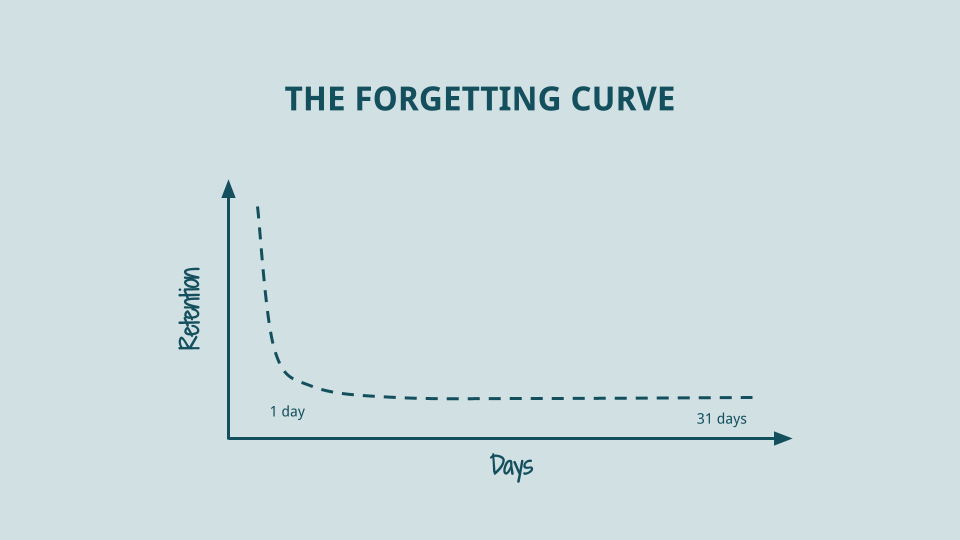How fast we forget
The forgetting curve suggests that we tend to halve our memory of new knowledge in a matter of days or weeks, unless we make a conscious effort to review the newly learned material.

Capital Thinking · Issue #984 · View online
We spend a lot of time reading and studying in the hope of acquiring new knowledge. However, most of us focus a lot more on learning rather than remembering.
As a result, our mind is often a leaky bucket we keep on trying to fill, only for all of that new knowledge to soon disappear. This is because knowledge does not only have a learning curve.
It also has a forgetting curve.
The forgetting curve: the science of how fast we forget
The Ebbinghaus forgetting curve
Hermann Ebbinghaus was a German psychologist who is known as a pioneer in the experimental study of memory. Curious about why we forget things and how to prevent it, he decided to run a study on himself.
From 1880 to 1885, Ebbinghaus tried to commit words to memory, and repeatedly tested himself after various time periods, and recorded the results. The words were nonsense combinations of syllables, following a Consonant–Vowel–Consonant pattern.
He then plotted the results he obtained on a graph, which looked like this:

This graph is now known as the forgetting curve, which illustrates how information we learn is lost over time when we make no attempt to retain it.The forgetting curve suggests that we tend to halve our memory of new knowledge in a matter of days or weeks, unless we make a conscious effort to review the newly learned material.
Of course, such a study with just one subject is limited in nature, but Ebbinghaus is considered one of the first scientists to explore the subject of forgetting through well-designed experiments on the subject of forgetting, and his research contributed a lot to the field of experimental psychology.
In fact, Ebbinghaus’ findings are interesting enough for scientists to still explore the concept of the forgetting curve to this day.
As you may know, psychology is a field where replication of studies is often a problem. However, in 2015, a research team successfully reproduced the forgetting curve from Ebbinghaus’ findings.
The researchers write:
“In 1880, Ebbinghaus set new standards for psychology experiments, already incorporating such ‘modern’ concepts as controlled stimulus materials, counterbalancing of time-of-day effects, guarding against optional stopping, statistical data analysis, and modeling to find a concise mathematical description and further verify his results. The result was a high-quality forgetting curve that has rightfully remained a classic in the field. Replications, including ours, testify to the soundness of his results.”
Knowing that you will probably forget most of what you study in the absence of intentional attempts to retain information, how can you go about reducing your forgetting rate so you can remember more of what you learn?

